
 Flash News
Flash News
Two vehicles collide in Karbunara, one injured
Fire near the center for people with disabilities in Berat, suspected to be intentional
Internationally wanted for corruption, Loran Dusha extradited from Zimbabwe
Fire in Kavaja, a scrap metal collection point engulfed in flames
The appeal of the GJKKO leaves the seizure of Arben Ahmetaj's assets in force
Israeli attacks/ American media: Iran, still untouched! Is the race for uranium coming?
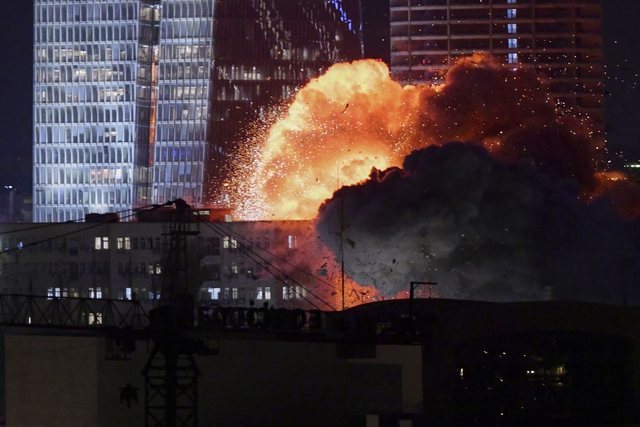
One of the largest air operations of the last decade took place in the early hours of the morning, when the Israeli air force launched a wide-ranging and coordinated attack on more than 100 military and nuclear targets in Iran. The operation, codenamed "Lion on the Rise," was the result of long planning and aimed to paralyze Iran's nuclear capabilities.
Several dozen F-35 fighter jets and drones, supported by Israeli intelligence operatives (Mossad), hit Revolutionary Guard bases, uranium enrichment laboratories and nuclear research centers. According to reports from international media and Iranian sources, over 78 people have lost their lives, including important figures such as commanders Hossein Salami and Mohammad Bagheri, as well as nuclear physicist Fereydoun Abbasi.
Iranian response and escalation of tensions
In retaliation, Iran launched over 150 ballistic missiles and more than 100 drones towards Israeli territory. Despite the intensity, Israel reported limited damage thanks to reinforced air defenses and assistance from Western allies. However, the situation remains extremely tense and with the risk of further escalation throughout the region.
Nuclear targets intact
Beyond the numerous strikes and the deaths of some of Iran's leading scientists, Iran's nuclear program has not been neutralized. According to the analysis of the Washington Post and New York Times newspapers, the main plants in Natanz and Fordow, built deep underground - up to 80 meters - have remained almost intact. The attacks have caused damage only to surface structures and regional support laboratories, without seriously affecting uranium enrichment capacity.
While the Israeli government has portrayed the operation as a "strategic success," analysts are divided on its long-term impact. Many experts warn that this action could have opposite effects, prompting Iran to further accelerate its nuclear activities and eventually close any door to diplomatic dialogue.
The region in distress, the US in a delicate
position The United States, which did not directly participate in the operation but provided support for Israeli defense, is now in a difficult position. Nuclear talks with Tehran have stalled, while Gulf countries view the situation with deep concern, warning of the risk of a new regional war that could involve more actors.
The future: escalation or restraint?
Relying on the underground nature of the plants and the alternative networks of technical knowledge that Iran has built over the years, efforts to finally stop the nuclear program seem increasingly difficult. The crucial question that now arises is: will Iran choose to further escalate the conflict, or will it seek new forms of confrontation?
For now, despite major losses and a manpower strike, Iran's nuclear program remains functional – leaving open a dangerous scenario of instability in the Middle East.
Latest news


Two vehicles collide in Karbunara, one injured
2025-06-14 21:36:38
A person is found without signs of life in Peja
2025-06-14 21:18:19

Are you hungry after exercising? Experts recommend these snacks
2025-06-14 20:36:24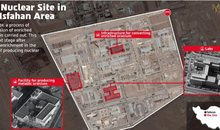

Kudos to Edi Rama for committing the May 11 theft in front of the cameras!
2025-06-14 19:57:21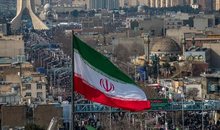
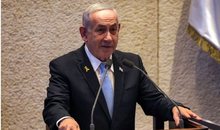

These are the 3 most jealous zodiac signs
2025-06-14 19:01:29

Nesho: Iran is the violator of nuclear production
2025-06-14 18:21:43

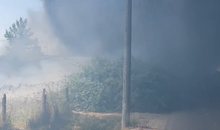
A scrap metal collection point in Kavaja is engulfed in flames
2025-06-14 17:19:47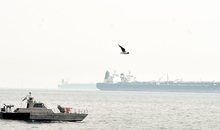
After Israeli attacks, Iran considers blocking the Strait of Hormuz
2025-06-14 17:02:28
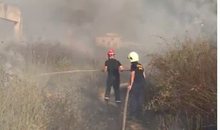

Ja çfarë i ndodh organizmit tuaj nëse konsumoni çdo ditë limon
2025-06-14 16:16:23



Internationally wanted for corruption, Loran Dusha extradited from Zimbabwe
2025-06-14 15:30:04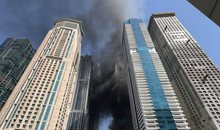
VIDEO/ Dubai skyscraper engulfed in flames, 3,800 residents evacuated
2025-06-14 15:16:49
With these 5 ways, you can cope with the heat even at home
2025-06-14 15:08:46

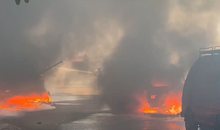
Fire in Kavaja, a scrap metal collection point engulfed in flames
2025-06-14 14:43:40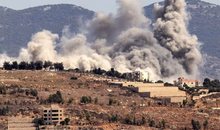
Israel eliminates 9 scientists of the Iranian nuclear program
2025-06-14 14:33:34
The appeal of the GJKKO leaves the seizure of Arben Ahmetaj's assets in force
2025-06-14 14:17:14
Less appearance, more connection: How the way men love is changing
2025-06-14 14:16:13
Astrit Sinanaj is arrested in Tirana, he tried twice to kill a businessman
2025-06-14 14:02:59
Accident on Arbri Road, two foreign tourists end up in Trauma
2025-06-14 13:37:03


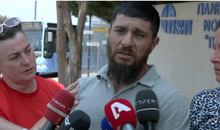

Tourist found dead inside apartment in Vlora
2025-06-14 12:46:40

Accident in Levan, truck with kitchen utensils ends up in the canal
2025-06-14 12:12:57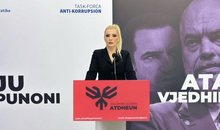

Clashes at the Order of the Psychologist, Treska declares the elections invalid
2025-06-14 11:45:55


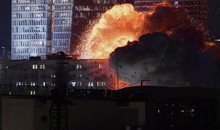
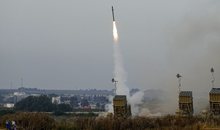

The weekend brings luck for this zodiac sign, a pleasant surprise is coming!
2025-06-14 10:34:31
Caught with firearms and drugs in the car, two people arrested at "Ali Demi"
2025-06-14 10:25:17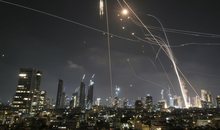
Analysis: Israel's attack on Iran, ignition of conflict in the Middle East?
2025-06-14 10:16:14
Gambling in a bar, the owner and the waiter are arrested in Divjaka (NAMES)
2025-06-14 10:07:27

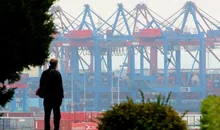
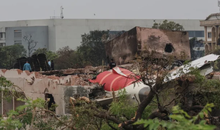

Tourist packages, how much does Albania "cost"
2025-06-14 08:58:23
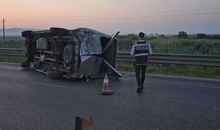

From sun to clouds, what will the weather be like this Friday in Albania
2025-06-14 08:19:49
Morning mail/ With 2 lines: What mattered yesterday in Albania
2025-06-14 08:08:49
CEC decides to limit spending on local election campaign in Kosovo
2025-06-13 22:54:43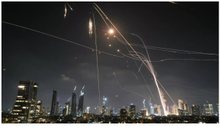
Israel confirms US support for the neutralization of missiles by Iran
2025-06-13 22:37:44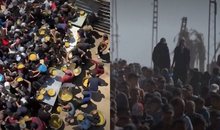

Foods you should avoid after your 40s for health
2025-06-13 22:05:07
Possessive and toxic, get to know the 3 most jealous signs of the horoscope
2025-06-13 21:51:58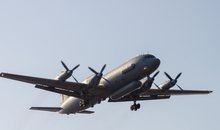
Poland: A Russian plane violated our airspace!
2025-06-13 21:40:15
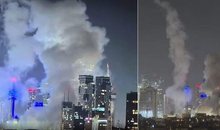

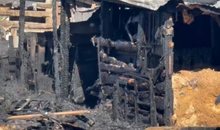
Tragedy in Kurbin/ Fire engulfs pig barn, 450 pigs burned alive
2025-06-13 20:40:44
Xixho: Without functional democracy, EU integration remains an illusion!
2025-06-13 20:27:45
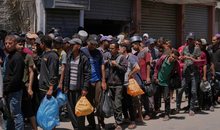
UN: Gaza aid group has failed in its mission
2025-06-13 20:04:32

BIRN: Half of Albanians have a gross salary of less than 62 thousand lek!
2025-06-13 19:31:41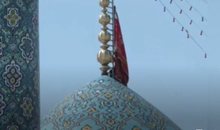
Revenge warned/ Iran raises red flag over mosque, consequence of Israeli attacks
2025-06-13 19:23:10
Albanian man killed in metro station, two Englishmen found guilty
2025-06-13 19:08:41
How recommended is a midday nap for health?
2025-06-13 19:01:58

Serious in Italy/ Albanian stabs 23-year-old in Ravenna, escapes on motorcycle
2025-06-13 18:18:57
Car catches fire in Bulqiza, driver and passengers rescued
2025-06-13 17:59:20

Attacks on Iran/ Tirana-Tel Aviv flights canceled, embassy closed
2025-06-13 17:35:45
Apple warns again: Don't sleep with your iPhone while charging!
2025-06-13 17:20:31
Albanian youth raped worker in Greece, surrenders to police (NAME)
2025-06-13 16:59:50
Plenary session in the Parliament on Monday, what will be discussed?
2025-06-13 16:42:10

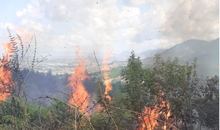
Fire in Berat, a bushy area is engulfed in flames
2025-06-13 16:06:18



Israeli attacks, Trump calls on Iran: A deal must be made, before it's too late
2025-06-13 15:19:21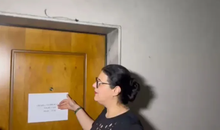

Israel's attacks on Iran raise oil prices worldwide
2025-06-13 14:56:37
The Kosovo Assembly is not constituted even in the 31st attempt
2025-06-13 14:41:24
Euro hits 'bottom', European currency drops to new historic low
2025-06-13 14:30:28
First outbreak of small cattle plague confirmed in Korça
2025-06-13 14:19:51
Kiara Tito "in mourning", experiences great pain: I will always miss your voice
2025-06-13 14:13:47
